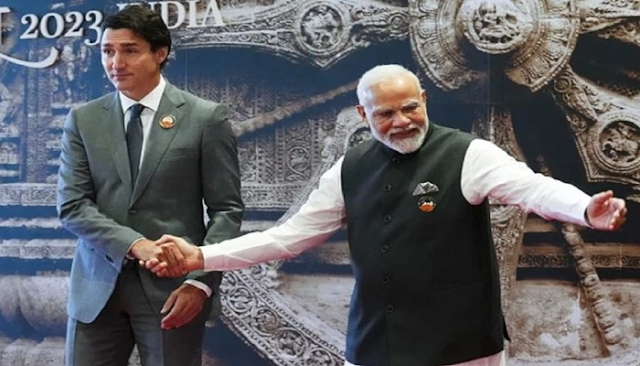Canadian Diplomats Under Scrutiny for Misusing Their Roles in India: Visa Controversy, Alleged Khalistani Links, Farm Protest Funding, and Accusations of Meddling in Indian Affairs
Canadian diplomats stationed in various consulates throughout Chandigarh and Punjab have come under scrutiny for their actions in India, as reported by News18, citing high-level government sources. The report suggests that Canadian diplomats adopted a lenient approach, intentionally granting visas to individuals with known criminal backgrounds who supported the Khalistani separatist movement. It is alleged that these visas were issued to bolster support for the Khalistani cause.
According to government sources, Canadian officials exhibited laxity in their visa approval process, even extending visas to individuals who were subjects of investigations and potential legal action by Indian agencies. "Visas were granted despite awareness of the applicants' questionable backgrounds. Many individuals who received such visas have been engaging in criminal activities in Canada. The primary motive behind these visa grants was to support the Khalistani cause, thus enhancing the movement's strength," as quoted by government sources to News18.
The Indian government reportedly possesses evidence of Canadian involvement in supporting the ongoing farmers' protests against the three contentious farm laws. Canadian officials are accused of direct and indirect interference, encouraging the Indian diaspora and farmers to agitate. According to sources, these interactions with the Indian government facilitated funding for the protests, which, while appearing legitimate, witnessed a significant surge in financial contributions. Canadian diplomats had regular and unwarranted meetings with Punjab government officials. In some instances, individuals formally and informally briefed Indian agencies about the intentions of Canadian officials.
Following extensive deliberation and scrutiny of evidence presented by Indian intelligence agencies and on-ground actions, India called upon the Canadian government to recall 41 of its diplomats. India's concerns extended to Canada's refusal to cooperate in extradition cases and their lack of support in investigating individuals who had sought refuge in Canada.
It is noteworthy that on October 22, India's External Affairs Minister, Dr. S. Jaishankar, revealed that India possesses evidence of continuous Canadian interference in Indian affairs. He hinted that a significant portion of the information had not been disclosed to the public yet and suggested that more details might emerge over time to clarify the necessity of India's actions.
Dr. Jaishankar explained that India sought parity in the presence of diplomatic staff due to concerns about "continuous interference" by Canadian personnel in Indian affairs. He emphasized that invoking parity aligns with the Vienna Convention, dismissing the Canadian Foreign Minister's allegations that India violated international law by reducing Canada's diplomatic presence in India.
In Dr. Jaishankar's words, "Parity is very much provided for by the Vienna Convention, which is the relevant international rule on this. In our case, we invoked parity because we had concerns about continuous interference in our affairs by Canadian personnel."

Comments
Post a Comment